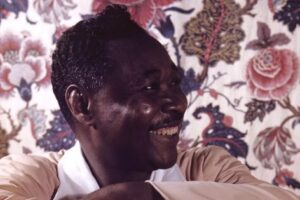Claude McKay

In honor of Black History Month, we continue to recognize the economic, cultural, political, and social contributions of notable Black immigrants and refugees who’ve helped shape the vibrant tapestry of America. Today, we recognize Jamaican-American poet and Civil Rights advocate Claude McKay.
Festus Claudius “Claude” McKay was born in 1889 in Clarendon Parish, Jamaica. Born to farm-worker parents, he started integrating his family’s pride in its Madagascar and Ashanti heritage with his burgeoning love for British poetry at an early age.
His first mentor was his older brother, Theodore, a teacher of novels, poems, and other texts written in English. Soon, Claude was encouraged to write poetry in his Jamaican dialect by a new mentor, English clergyman and translator, Walter Jekyll.
In 1912, the 23-year-old Claude published his first books of verse, Songs of Jamaica and Constab, which won him a grant from the Jamaican Institute of Arts and Sciences. He used the prize money to move to the U.S., where he studied at the Tuskegee Institute (now Tuskegee University) and Kansas State College. His work was published in London that same year.
In 1914, McKay moved to New York City, setting up a home in Harlem. Three years later, he published two sonnets, The Harlem Dancer and Invocation. He went on to use poetry to write about social concerns from his perspective as a Black man in the U.S. His writing focused on political, social, and labor organizing. His series of poems published in 1917 included If We Must Die, a response to racial prejudice and abuse, and quickly became his best-known piece of work.
In the 1920s and 1930s, Claude McKay and his works were central to the Harlem Renaissance movement, an intellectual and cultural revival of African American music, dance, art, fashion, and literature.
He spent the last decade of his life working with various Catholic relief organizations after he converted to Catholicism. The work inspired his essay collection, Harlem: Negro Metropolis, which documents his observations and analysis of the African American community in Harlem. The NAACP presented him with the Harmon Foundation Award for distinguished literary achievement for his works, Harlem Shadows and Home to Harlem, describing the plight of Black life and struggles. He was also awarded a James Weldon Johnson Literary Guild Award in 1937.
Claude McKay became a naturalized U.S. citizen in 1940 and wrote over 300 poems before he died in 1948.
Others we are celebrating in honor of Black History Month:
- Guetty Felin, filmmaker
- Hakeem Olajuwon, professional basketball player

